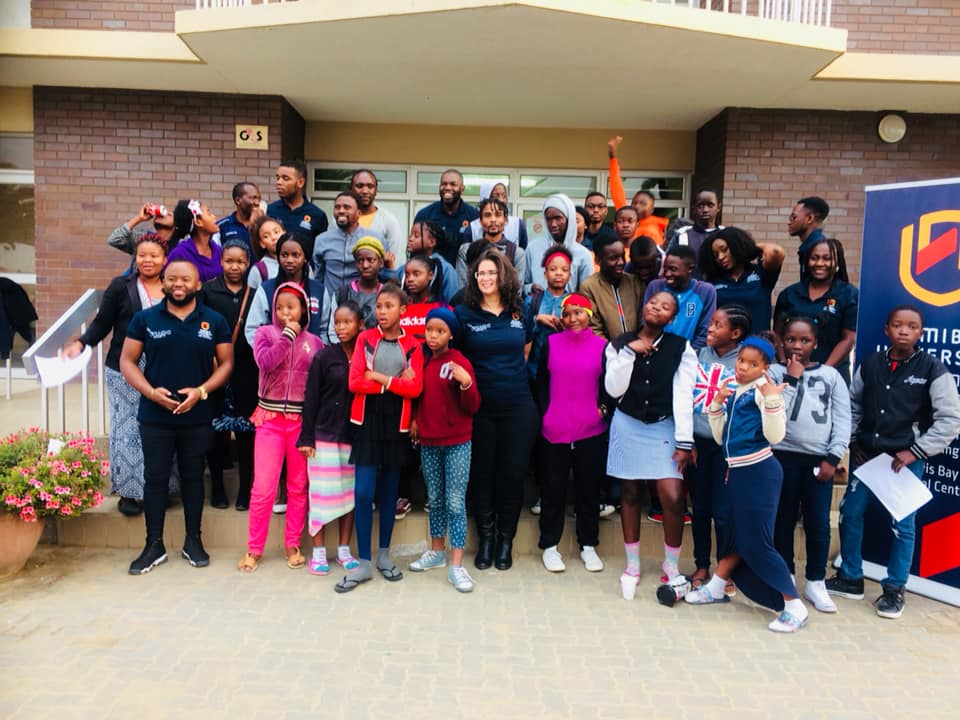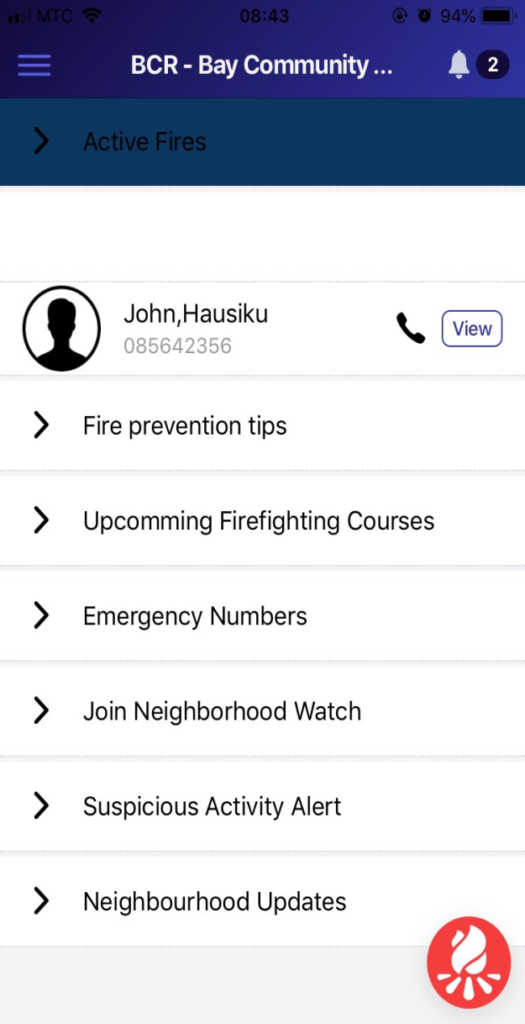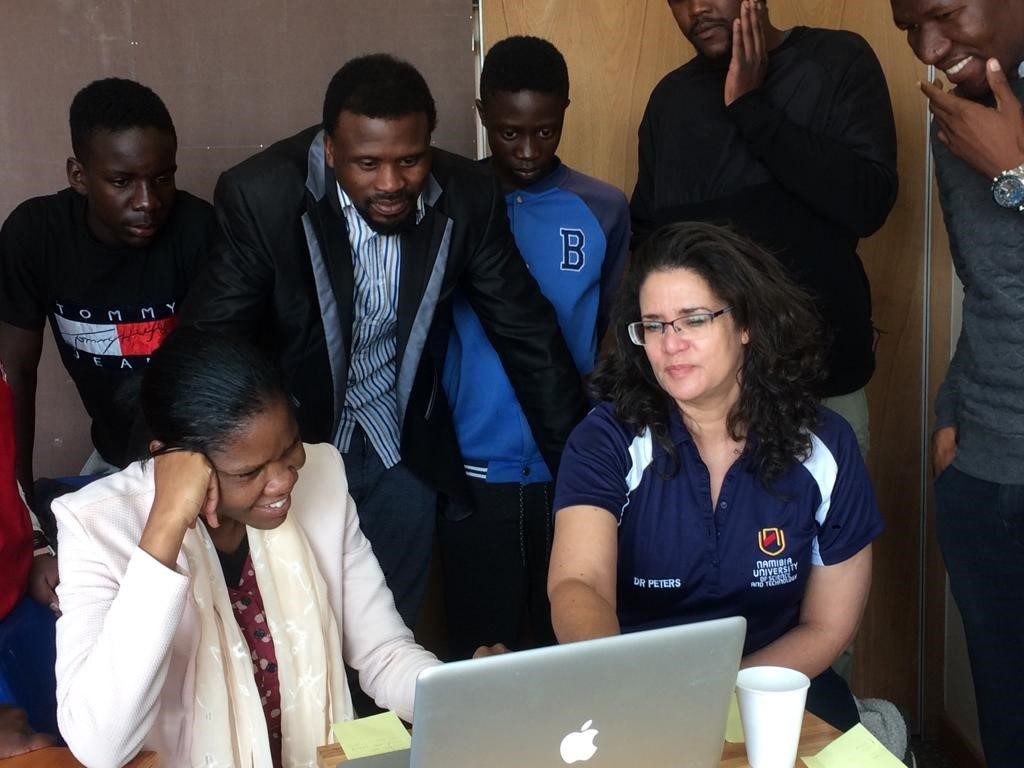
Innovative prototypes at Swakopmund and Walvis Bay youth (Part 2)
On February 2019, NUST FCI under the Tech HUB grant collaborated with a local youth activist, Ms Lucia Aochamus and the Faculty student society – Muhoko Developer Group to co-design with the Mondesa community in Swakopmund. In the initial workshop, four prototypes were designed which comprised of a virtual school, smart parent app, child awareness app and a fire emergency response app. We then held a follow-up session on 9 – 11 August 2019.
The second co-design session took place at the Namibia University of Science and Technology (NUST) COLL Regional Centre in Walvis Bay with a total of fifty (50) participants. The second workshop was aimed at developing the previously co-designed solutions into software products.
We invited lecturers, students and industry professionals to facilitate the development of the prototypes along with community members from Walvis Bay and Swakopmund. The purpose of the coding and design workshop was to equip the community members with powerful design tools and methods that will enable them to further develop (code) them into functional software products.

Redesign session
The event kicked-off with a warm-up game session with the participants, right after that they were dived into a one hour lecture on HCI/Co-Design Techniques which was followed by a team formation exercise. The lecture was intended to introduce the new participants (from Walvis Bay) to design skills and refresh the old participants’ memories, in the case of old participants wanting to redesign their initial prototypes. Two facilitators were assigned per group, they started redesigning and developing their prototypes. The facilitators/software developers would teach the group members how to code. The participants had the opportunity to engage in design activities and develop their prototype ideas that addressed the prominent challenges faced in their community.

Facilitators teaching the participants how to create their own websites
The team of software developers, designers and facilitators shared their experiences during the sessions. This was done as a way to motivate the participants when they were busy coding their design ideas into software products. A key outcome from this process was the five solutions that addressed issues around:
- Teenage Pregnancies – a solution to educate and mitigate teenage pregnancies and sexual health issues.
- Homelessness – a solution to improve the lives of homeless people in Namibia
- Fire response – a solution that allows emergency response to fire incidents in Swakopmund and Walvis Bay
- Studying made fun – a solution for school learners to improve their learning experiences hence prevent learners from dropping out of school
- Child Safety Game – a game for Namibia children to learn safety and to make them aware of human trafficking and abuse.
The solution to improve homeless people in Namibia was designed in the second workshop. The Participants tested those solutions by having other teams come and test their application. The testers provided valuable feedback on how to improve the prototypes. The suggestions such as preventing false reporting for the fire response app, the use of biometrics in the homeless app as a way to identify homeless people were then implemented.

Homeless App features

Fire response App features

Testing session
The two phases of the project have been successfully completed. The participants walked away fully equipped with the tools and methods needed to design their own prototypes and develop their paper prototypes using a programming language. They expressed their satisfaction with the workshop saying that they enjoyed coding. An auxiliary outcome was the knowledge transfer of website development and learning design and coding.

The team lecturers, students, industry professionals, high school dropouts, high school learners
Comments are closed.